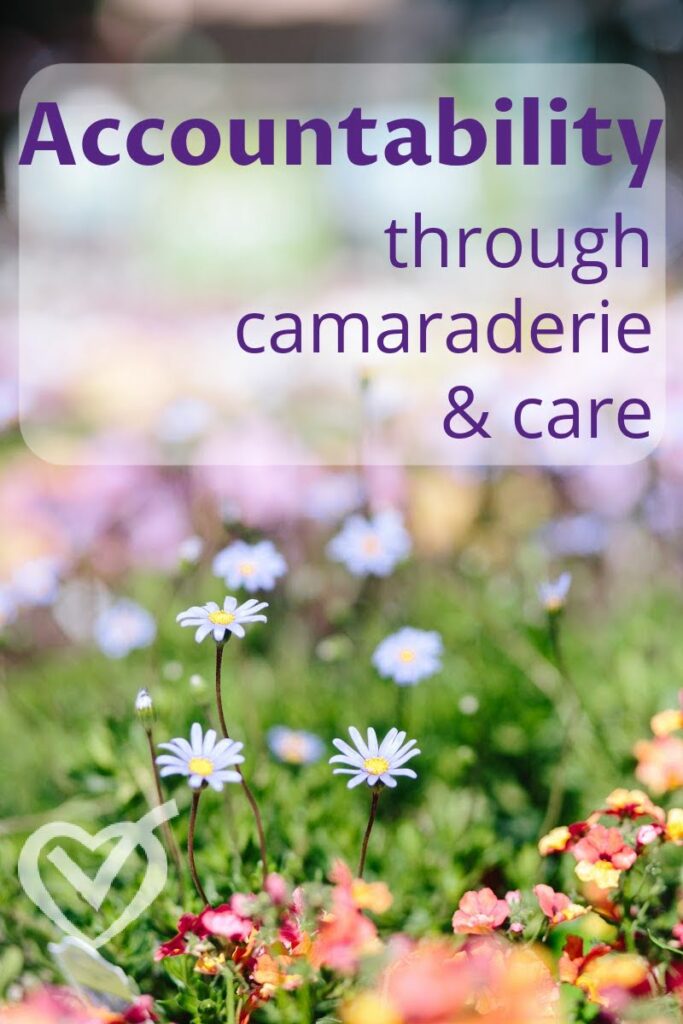If I pop into my husband’s office around 9 in the morning, I do so with as much stealth as I can, blending into the background as I grab my laptop or a book or more lined paper.
It’s stand up time, and there he is, standing, listening to his coworkers on video chat explain what they’ve done since yesterday’s stand up and what they will be working on next. It doesn’t take much time, but it keeps the team on the same page, it increases motivation to have something to report, and it provides accountability.
A stand up meeting, whether daily or weekly, is part of what is known as Agile project management in software development circles. It is supposed to promote independence of programmers within a framework of accountability, as well as flexibility of focus. Interval planning was born partially out of my reading up on the practices – in Agile terms, an interval is a sprint, a focused work period followed by a recovery and readjustment phase.
Nearly two years ago now, Brandy Vencel and Pam Barnhill and I started “standing up” via voxer, weekly. Every Monday (ok, sometimes Tuesday), we start a new thread and tell the others our top 3 tasks or big project for the week. Actually, before we do that, we have to go to last Monday’s thread and report on whether or not we did those things we said we were going to do.
It’s easy to want to move on and forget about last week – let’s start fresh! But the learning happens in those reporting threads, not the new threads.
In this way, not only do we stay aware of what the others are working on, but we gain a measure of accountability without losing independence and flexibility. Knowing I’ll have to come back and say whether or not I completed my weekly task helps me put down the phone, stop the distracting “productive procrastination” task, and just do what I should be doing.
And because all three of us are homemakers and homeschoolers first, and bloggers and business owners only on the side, we understand and acknowledge that weeks often don’t go as planned, the best laid plans go oft awry, and there are many valid reasons tasks might be postponed for the next week.
But, we’re also honest with each other. Sometimes the work we said we’d do doesn’t get done because we got distracted, we didn’t look at the list we made, we actually didn’t wanna, we let the urgent and unimportant overshadow the important but not urgent. And just having a place to share that, helps us all guard against various temptations, but mostly procrastination.

It would be possible for an accountability group like this to work by competition, sharing stats or secrets to prove who was best. Comparison and competition, however, do not make true motivation. Anxiety is not motivation; it is sin. Although it might spur you on for awhile, it will then desert you, leaving you for dead on the side of the road.
No, our little group runs not on competition, but on camaraderie, on likemindedness, on laughter and levity and honesty.
Such accountability works not only for business and project goals. Camaraderie-style accountability can help us spur one another on to any sort of good work: homemaking, homeschooling, holiness.
And let us consider how to stir up one another to love and good works – Hebrews 10:24
Camaraderie-based accountability doesn’t have to be official, with rules and agreed-upon terms. If rules float your boat, lay some out; remember, however, that our lives demand flexibility. Hold the rules loosely, as guidelines, not as whips. If rules scare you, you don’t need them! This is really just a friendship-maker. Make a regular and routine topic of conversation what you’re up to and encourage each other to dig in and do the work with a cheerful heart. It can be very natural and informal.
Really, friendship-based, informal accountability is a way to do life together. In this way we keep track of what’s going on in each other’s lives and we can pray specifically and also encourage meaningfully and practically – perhaps even by lending a hand or an ear. It doesn’t have to look or sound spiritual or deep – yet it is. It is sharing the burden, even the mental burden, in an everyday, practical way.
The truth is that we care more when someone we care about cares.
Care is at the heart of motivation, and care is something we can give one another.
That is, when we have a friend who cares about our eating plan, our home routines, or our Bible reading habits, it helps us care more, too. That little extra nudge might be all we need to make it over the momentary emotional (i.e. motivational) blips.
